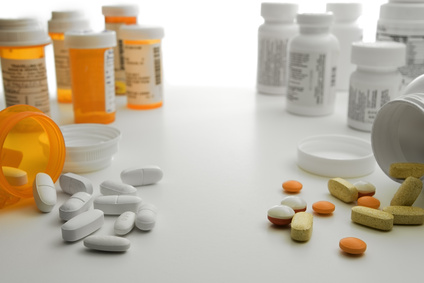Good news for those having trouble paying for their medications; over the next year or so patents are scheduled to expire on nearly half of the world’s top twenty medications. With generics becoming available on everything from blood pressure to depression medication it is estimated that approximately 15% of the population will notice significant savings on their health care costs.
Generic Medicines
According to the U.S. Food and Drug Administration, generics are medicines that are chemically equivalent to a name brand medication. They are regulated to ensure that they are the same in active ingredients, dosage, method of administration, quality and performance as their name brand counterparts. Because they do not have to pay developmental and testing costs and because of the increased competition generics are usually offered at 20-80% lower cost to consumers. U.S drug patents are good for twenty years of protection but because many of those years are spent developing and testing the drug the usual active life of a drug patent is around 10-12 years. It is when these patents run out that generic versions are able to go into production.
How it Will Affect the Public
Because insurance companies have systems in place to automatically switch patient to generics when they become available most people will not have to ask their doctors or pharmacists for the new drugs, they will get them and the savings they ensure quickly and automatically. For those with insurance, the average copay on generic medications is $6 a month, compared with $24 for insurer preferred brand names and $35 for those nonpreferred. For those without insurance savings will be considerably higher. According to Wolters Kluwer Pharma Solutuions the average price for a brand name medication is $198 compared to only $72 for generics. With many couples in the U.S, paying over $1000 a month in medication costs this news comes as an enormous relief. Doctors are relieved too; today many people avoiding taking their medication or visiting their doctor because of the prohibitive costs. As medications become more accessible it is hoped that fewer people will jeopardize their health because of the high costs.
The Big Seven
Over the next fourteen months the following medications will go off-brand.
- Lexapro-Used to treat anxiety and depression, Lexapro’s patent expires in March of 2012
- Actos- A common drug prescribed to those suffering type 2 Diabetes, this blood sugar regulator’s patent is set to expire in August of 2012.
- Zyprexa- Commonly used to treat bipolar disorder and schizophrenia, Zyprexa’s patent is set to expire October, 2011.
- Seroquel- Another drug used to treat schizophrenia and bipolar as well as depression, Seroquel’s patent is set to expire in March of 2012.
- Lipitor- Taken by over 4 million Americans, Lipitor is one of the most common medications taken in the U.S. and is prescribed to prevent heart attack and stroke. It’s patent is set to expire in November of 2011.
- Plavix- This blood thinner is taken by almost 1.5 million Americans to avoid heart attack and stroke. At a cost of $200 a month patients will be relieved when its patent expires in May, 2012.
- Singulair- Prescribed for asthma and allergy sufferers, Singulair’s patent is set to run out in August, 2012.
These seven medications are just the beginning for what is sure to be an enormous change in the way people view their health care. Over the next decade another estimated 120 popular medications will see their patents expire opening up the pharmaceutical world too an enormous amount of competition. Not only will these changes help the people who take each medication but savings for the government and tax payers will be astronomical. According to the Generic Pharmaceutical Association, generics have already saved the health care system $824 billion dollars over the last ten years and a number now approaching $1 billion every three days.








